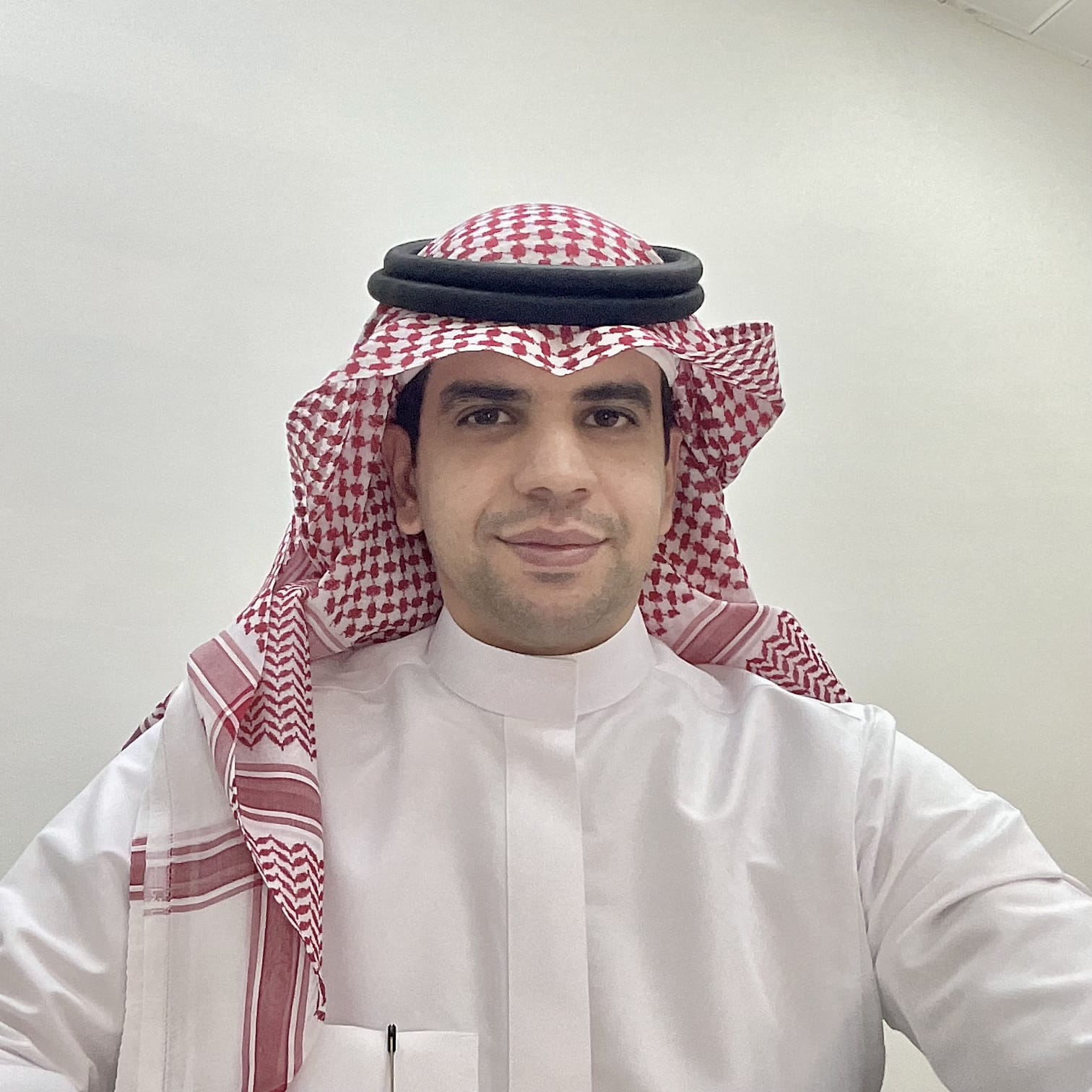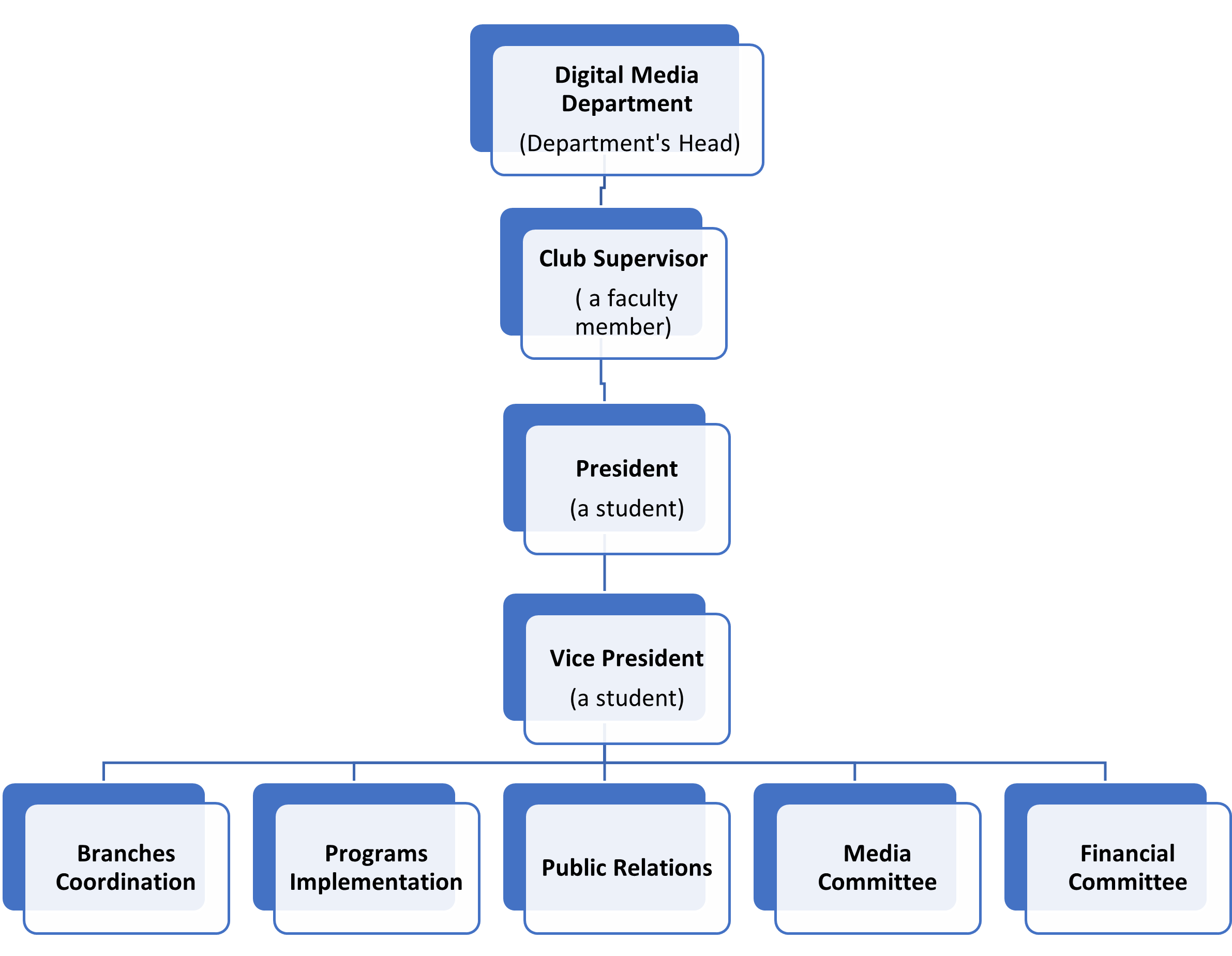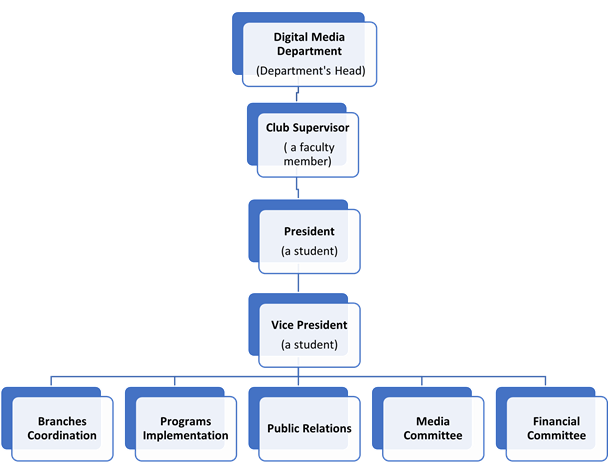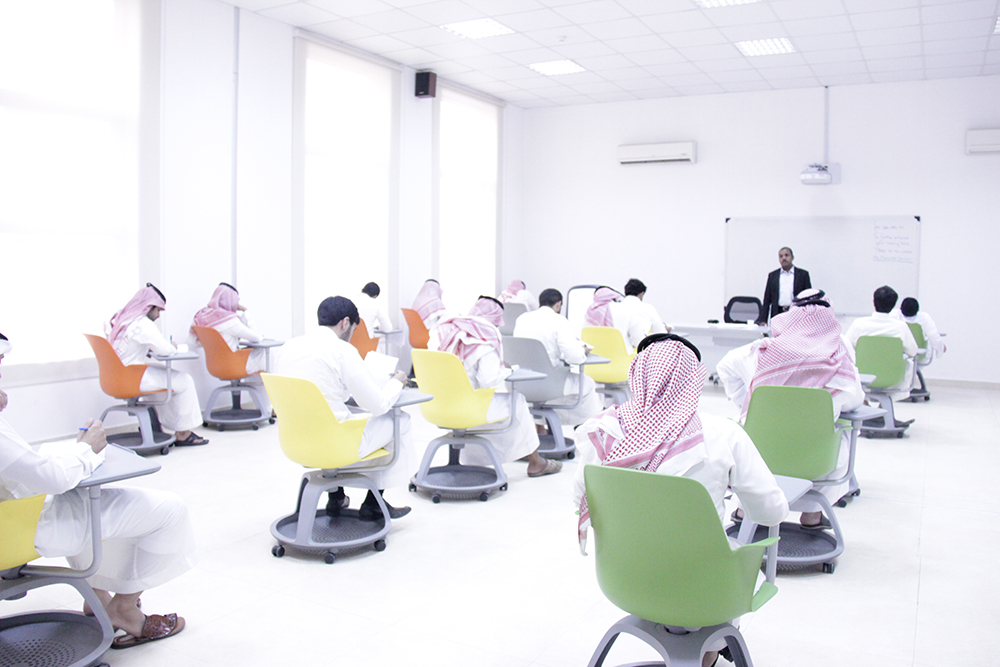Definition
The Electronic Media Department was established at the Saudi Electronic University with the establishment of the Science and Theoretical Studies College, based on the decision of the Higher Education Council in its (seventy-fifth) session on 1/2/1435 AH, after the Council reviewed the memorandum of the General Secretariat of the Council in this regard, it took its decision number (23/75/1453) Judge the following: Approval of the establishment of the College of Science and Theoretical Studies at the Saudi Electronic University. The department was established to be a specialized department that keeps pace with the rapidly changing world of media as a result of technological developments. Therefore, it pays attention to several practices in the specialization, its effects and ethics, trying to absorb all the branches of digital media so that its program is not dedicated to press and media training only for the student; Rather, it enables him to expand his awareness and develop his skills in several areas, such as writing press texts and production skills, while highlighting the professional role of public relations in this digital age and other fields. The managers of the Electronic Media Department are looking forward to attracting qualified people who wish to study the specialization in its advanced technical form and in its multiple attractive spaces. Addressing a different dimension for studying this program from its counterparts in other universities, by combining the consolidation of theoretical concepts with skill applications in order to enhance the role and mission of the university in this context.
Graduates Skills
Familiarity with the knowledge and skills necessary for media writing in general and digital media in particular.
The ability to deal with databases and various sources of information.
Be able to create, design and produce digital media materials including multimedia, graphics and illustrations.
Ability to manage digital websites and their contents.
Familiarity with the characteristics and ethics of digital media.
The ability to innovate and build smart applications related to digital media.
Familiarity with media research methods, fields, and recent trends in light of the spread of digital media.
Understand the requirements and methods of digital marketing and public relations.
Head's Word

In the name of of Allah the Merciful
The Department of Electronic Media is the first academic department to offer a Bachelor’s program in Digital Media in Saudi universities. We believe in the importance and the significant role it can play in the human capital devolvement in Saudi Arabia.
The Department of Electronic Media aims to provide an innovative educational environment that combines theoretical knowledge with practical application, keeping pace with the transformations brought by the communication and information technology revolution. We strive to stay ahead in the rapidly advancing fields of media and communication by developing teaching methods and techniques to cultivate a human capital who equipped with both theoretical and practical skills, capable of competing globally.
The department’s curricula are designed based on the latest global experiences, aiming to equip students with modern skills and knowledge that enable them to excel in the fields of media and digital communication. The department aspires to be a pioneering reference in its field, committed to provide advanced education that meets the needs of the labor market and contributes to building human capital specialists who drive the development of the Kingdom of Saudi Arabia.
Head of Electronic Media Department
Dr. Omar Alshaya
Introduction:
Student clubs link students with college administrations and department councils. Through these clubs, students can present their ideas on topics related to their education and recognize the administration's and faculty members' points of view; such exchange of views enhances mutual trust and students' connection with their universities. Student clubs can serve as a platform through which students freely express their ideas and creativity and find an outlet for their talents away from courses. Student clubs can provide various opportunities to link students with the university community and the labor market. They also enhance students' active participation in identifying societal issues and problems and seeking practical solutions.
The Department of Electronic Media at the College of Science and Theoretical Studies understands the importance of student clubs in the empowerment of knowledge and skills of its members in digital media activities linked with the current and future needs of the labor market. It aligns with Vision 2030 goals of providing educational outputs that meet the labor market's and creative economy's needs. Because of that, The Department plans to establish a student club, which will serve as an arena for students' innovations and creativity, and effectively link their education with practical life and with the ambitious visions, plans, and programs adopted and implemented by the Kingdom.
Vision
"To prepare innovative and creative media professionals in the various fields and activities of digital media, who contribute effectively to achieving Vision 2030's goals."
Mission:
"To create an active academic environment that allows students of the Electronic Media Department to freely practice digital media activities at their own inclinations, releasing their creative ideas within the framework of professional practice values, and fueling the spirit of cooperation and media passion. And to provide training opportunities with distinguished media expertise in and out of the Kingdom, which will help them fill current and future digital media jobs."
Values:
- Citizenship - innovation and creativity - Equality and equal opportunities
- objectivity - Academic freedom - Social Responsibility
Goals:
- Strengthening the Islamic and national identity.
- Providing support and guidance to new students, assisting them in their new academic lives, and strengthening their communication with the department, college, and university.
- Introducing students to the environment and developments of digital media.
- Identifying students' tendencies and needs, and designing appropriate activities for them.
- Creating an encouraging and supportive environment that enhances students' knowledge and skills in various fields and activities of digital media.
- Linking the club's activities with Vision 2030's goals.
- Encouraging students to participate in various digital media activities.
- Fostering cooperation among students and encouraging them to take responsibility.
- Discovering and nurturing gifted and creative students.
- Providing various training programs and workshops to develop students' knowledge and skills in digital media activities.
- Assistance in transforming innovative ideas and creative projects into digital media products (creative industries) with economic returns.
- Developing students' knowledge and skills in media research.
- Providing connection opportunities with distinguished expertise and benefiting from their experiences in digital media, locally and globally.
- Promoting the values of professional practice of digital media.
- Providing scientific and technical digital media resources necessary for students to practice digital media activities.
- Achieving continuous communication and interaction between students, alums, relevant individuals, and institutions.
Club activities:
- Holding meetings that bring together members of the club, faculty members, and opinion-makers from outside the university to build confidence and enhance students' role to be influential and active members, beneficial to their religion and country, and leaders in their fields.
- Holding lectures and workshops that improve students' inquisition of digital media knowledge.
- Holding specialized training courses in digital media for club members.
- Holding in-person/virtual seminars and conferences to spread awareness among students of the latest developments in digital media and its connection to Vision 2030.
- Organizing activities and events that highlight club members' creative efforts and work in digital media magazines.
- Participating in and covering digital media events in and out of the university to exchange experiences and gain media skills in general and digital media skills in particular among students.
- Designing and implementing cultural and social programs that enrich students' knowledge and increase their social awareness and sense of community responsibility.
- Holding seminars and forums with press institutions, digital media practitioners, and business persons to discuss labor market needs and provide students with self-improvement methods to meet current and future labor market needs.
- Assisting student club members in obtaining suitable training and work opportunities in media institutions.
- Marketing creative media products (media content, e-games, design programs, etc.) through exhibitions and e-marketing.
- Holding digital media competitions to motivate students to innovate and create.
- Carrying out informative and educational visits and trips to media institutions, industrial and commercial institutions related to digital media, as well as entertainment trips.
- Organizing cultural, artistic, and sports celebrations for students' entertainment.
- Creating and constantly updating a database regarding students' talents and creative inclinations in digital media.
- Issuing electronic newspapers and magazines through which students are trained to practice digital journalism, cover club activities and events, and cover local and international events.
- Launching social media accounts run by students.
Administrative and Organizational Structure:
The club follows the Digital Media Department. The club has a Board of Directors headed by one of the students who meet the requirements for nomination (by being elected for a full academic year by club members ). The Board of Directors includes ten members, in addition to the club president and vice president. It includes heads of committees (Branches Coordination, Programs Implementation, Public Relations, Media Committee, and Financial Committee) and five club members elected by the club's General Assembly.
Related committees and teams to the club's activities emerge from its Board of Directors and General Assembly. Tasks and proposals about teams and committees are submitted through the General Assembly, the Board of Directors, or the Department Head and Club Supervisor. Decisions are put to the vote by the Board of Directors.
To join this club, please follow this link
organizational structure


